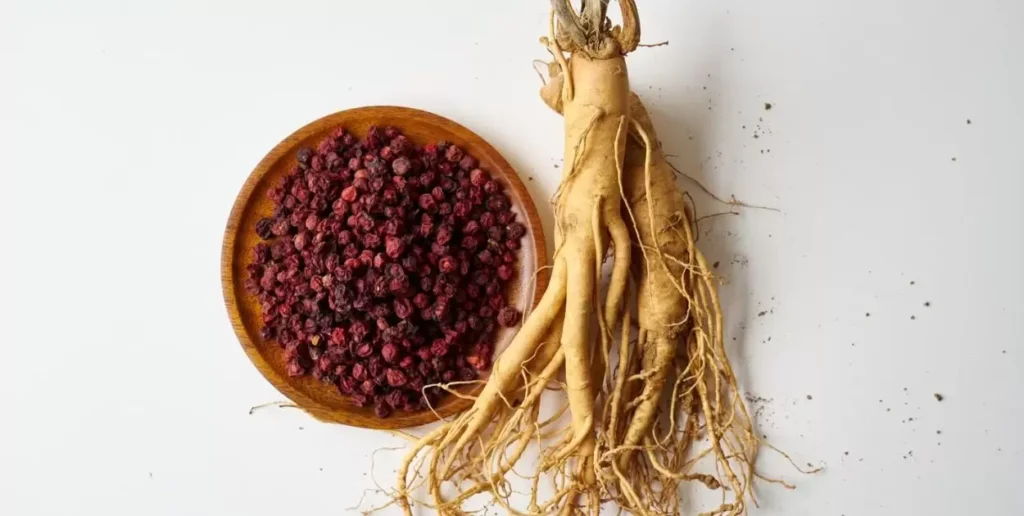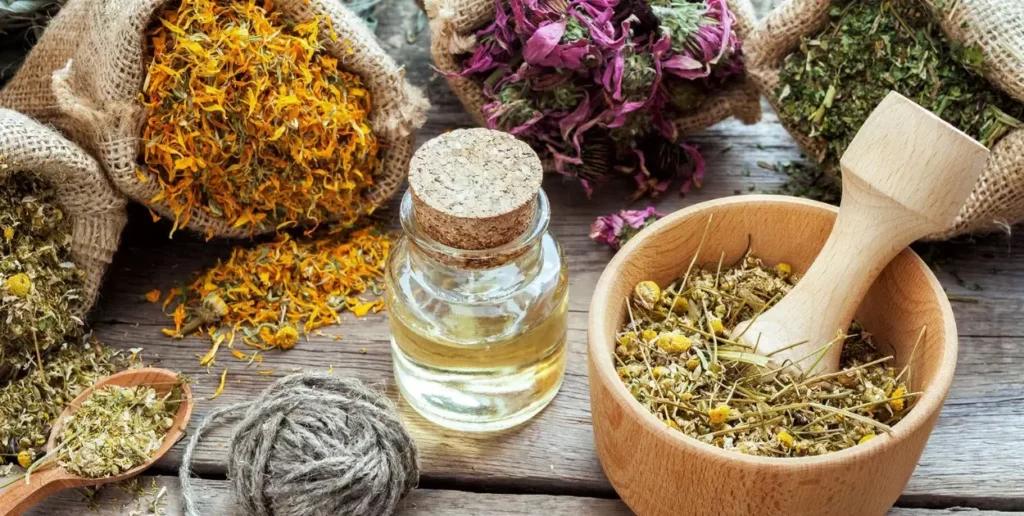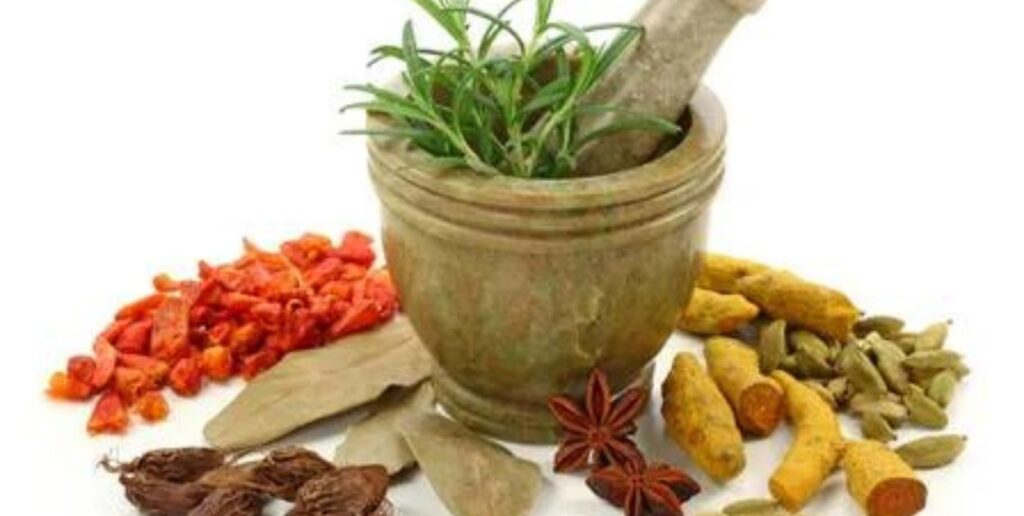Reducing blood sugar level immediately means bringing down a high blood glucose reading within a short span of time. When blood sugar spikes too high, it needs to come down quickly to avoid health issues.
Do you need effective herbal tips to reduce blood sugar level immediately? High blood sugar can make you feel awful in the moment and over time increase the risk of serious complications. Thankfully nature provides wonderful herbs that can help quickly lower glucose.
Certain herbs have blood sugar lowering properties that can be used right away when levels are high. Ginger root, cinnamon, and fenugreek are excellent natural options to chew on or steep in hot water. Consuming these herbs in any form provides tangible benefits without side effects
What is Blood Glucose and Why Does it Need Lowering Fast?
Blood glucose, also called blood sugar, refers to the main sugar circulating in the bloodstream and the body’s primary source of energy. It comes from the carbohydrates consumed in foods. When blood glucose levels spike too high after eating, it is called hyperglycemia or high blood sugar.
High blood sugar needs to come down quickly to avoid symptoms like excessive thirst, fatigue and blurred vision or long term complications. Elevated blood sugar can signal prediabetes and, over time, significantly raise the risk of serious health issues like heart disease, nerve damage and blindness if not managed well.
Ideally, blood glucose levels should remain between 70-130 mg/dL at all times. A quick-acting way to lower high readings is through consuming certain herbs with potent anti-hyperglycemic effects. Certain plants like ginger, cinnamon and fenugreek contain compounds that can start reducing blood sugar within 30 minutes of ingestion, providing relief from uncomfortable symptoms and nipping a spike in the bud before it causes issues.
Different Herbal Boosters Evaluating the Top 5 Herbal Blood Sugar Fighters
When blood sugar climbs too high, these 5 healing herbs have research-proven ability to lower levels rapidly through their unique anti-diabetic properties. Cinnamon provides the insulin-enhancing compound cinnamaldehyde to move blood sugar into cells. Ginger offers antioxidant gingerols and shogaols to curb sugar absorption from the gut.
Fenugreek seeds are high in fiber and steroidal saponins shown to mimic insulin’s functions. Turmeric harbors fat-burning curcumin to reduce circulating triglycerides linked to insulin resistance. Pterocarpus marsupium extract enhances glucose uptake without straining the pancreas.
All five herbs induce anti-hyperglycemic effects within 30-120 minutes when consumed in studies as supplements or mixed into meals and teas. Their individual constituents work synergistically to stimulate glycogen synthesis and storage in the liver and muscles.
Balance pancreatic secretions, increase cell permeability to glucose and protect against oxidative damage. Combined, they represent an ideal herbal arsenal for preventing or alleviating sugar spikes promptly and naturally without side effects.
How Does this Herbal Spice Slash Sugar so Speedily?
Cinnamon bark and leaf contain cinnamaldehyde, cinnamic acid and other powerful polyphenol compounds responsible for cinnamon’s rapid reductions in blood sugar. Studies show cinnamon improves insulin sensitivity to facilitate glucose entry into cells and reduce fasting blood glucose within an hour of consuming 1-6 grams of powder.
Cinnamon has the added benefits of toning down the liver’s gluconeogenic processes that produce new glucose and modifying gene expression involved in insulin resistance and inflammation.
Its quick-acting effects mean patients taking it with or after meals experience relief from hyperglycemic symptoms faster and see smaller fluctuations in blood sugar throughout the day. For those with prediabetes or newly diagnosed diabetes, cinnamon provides an ideal daily herb for keeping glucose in the target range.
Can this Herbal Rhizome Really Reduce BGL Immediately?

Ginger boasts anti-diabetic compounds gingerol, shogaol and zingerone that equip it to curb surging blood sugar levels when taken either before or after meals. The constituents promote glucose and fat metabolism by enhancing pancreatic insulin secretion, inhibiting α-glucosidase and sucrase digestive enzymes and blocking adipogenesis.
Ginger further prevents spikes by inhibiting glucose absorption in the gut through inhibiting α-amylase activity. It simultaneously improves insulin sensitivity at the target organs to shunt glucose into energy pathways rather than blood circulation. Taken regularly, ginger’s zesty anti-oxidants have shown reductions in fasting blood glucose.
HbA1c and cholesterol as little as 30 minutes after intake. Together, these effects explain why ginger is a leading Ayurvedic choice for people with both prediabetes and full-blown diabetes to maintain blood sugar equilibrium. Its distinctive flavor appeals as a natural remedy to counter hyperglycemia quickly and simply through daily use.
What Makes this Herbal Legume a Blood Sugar Regulator?
Fenugreek seeds contain fiber, galactomannan gums and steroidal saponins that render it uniquely dual-acting when it comes to controlling blood glucose. The soluble fibers swell in the stomach, slowing digestion and glucose absorption so the rise in blood sugar levels after meals stays much gentler and gradual.
Studies indicate fenugreek lowers fasting blood glucose an impressive 25% within 2-3 days of 400-600 mg per day supplementation as well as postprandial levels 30-60 minutes after a high carb meal. It does this by mimicking insulin’s actions to stimulate peripheral glucose uptake, inhibit hepatic glucose production and suppress appetite.
Thanks to fenugreek’s dual mechanism, it represents an invaluable herbal ally against reactive and unregulated hyperglycemia whether chewing seeds freshly or soaking them to make a tea or capsule.
Does this Golden Herbal Tuber Deserve Top Glucose Lowering Honors?
While best known for relieving inflammation, turmeric and its polyphenol curcumin also exhibit potential for reducing blood sugar levels acutely through multiple pathways. High doses of curcumin have demonstrated the ability to increase cellular insulin sensitivity and inhibit key enzymes linked to hyperglycemia and insulin resistance within 30-60 minutes.
Curcumin triggers production of adiponectin, a hormone that improves glucose metabolism as well as regulates glucose transporter proteins and enhances insulin signaling. Turmeric’s curcumin also improves glucose usage through lowered oxidative stress and triglyceride levels, both of which are associated with impaired blood sugar regulation.
Animal studies find powdered turmeric can reduce fasting blood glucose by as much as 26% compared to controls when taken at a daily dose of 400mg/kg for 45 days. Although human research on acute impacts remains limited, turmeric’s bioactive curcumin lends it credibility as a possible complementary blood sugar balancer especially when blood glucose spikes precariously higher.
Which One Should You Brew for Fast BSL Reduction?
Steeping combinations of ginger, cinnamon, fenugreek seeds and turmeric in hot water extracts their active ingredients for swift absorption to temper elevated glucose. Ginger tea provides antioxidant polyphenols within 30 minutes to inhibit sugar spikes. Steep 1 teaspoon fresh ginger in 8 oz water 10 minutes.
Cinnamon tea, using 1/4 teaspoon powder steeped 5 minutes, delivers cinnamaldehyde to enhance insulin sensitivity. Fenugreek tea, using 1 teaspoon seeds steeped 10 minutes, curbs digestion and promotes uptake. Turmeric tea, from 1/4 teaspoon powder steeped 8 minutes, boosts adiponectin for metabolism.
For an herbal beverage tailored to individual needs, blend any or all of these ingredients into one refreshing “blood sugar balancing” tea. Sip slowly while body temperature ensures compounds permeate cells. Herbal teas represent a convenient and side effect-free approach to counter high blood glucose promptly with nature’s pharmacy at hand.
Can Herbal Elixirs Squeeze Out a Glucose Lowering Surge?
Freshly juicing ginger, turmeric, cinnamon and fenugreek concentrates their active ingredients for rapid impact on blood sugar. Drink 2 ounces ginger juice for its superoxide-scavenging gingerols. Or mix 1 tablespoon each fresh turmeric and fenugreek juice containing curcumin insulin-sensitizers.
Cinnamon juice from 1/4 teaspoon powder provides cinnamaldehyde to lower abnormal glycation linked to diabetes complications within 30 minutes. Blending all four herbal juices strengthens their synergistic hyperglycemia-halting properties. Add a mint or lemon twist for taste.
While juices enable quick assimilation, limit intake to occasional use as sugars from fruit diluents could raise glucose needing reduction. Their glycemic load depends on whole vs. juiced form. Yet as nature’s fast-acting infusion, an herbal elixir squeeze can diabo-control-life/ tame unwanted hyperglycemia once in a while when levels spike precariously.
How Can Herbal Oils Lend Rapid BGL Assist through the Skin?

Essential oils from hyperglycemia-quelling spices like cinnamon, ginger and fenugreek offer topical administration for acute blood sugar reduction through an intricate network connecting skin and metabolism. Massaging 2-3 drops of any herbal oil on the feet enables compounds like eugenol and shogaols to impact circulating insulin along meridian pathways.
Cinnamon oil applied behind the ears provides a convenient acupressure delivery method to enhance glucose disposal within 30 minutes. Ginger or turmeric oils may also help curb exercise-induced spikes by relaxing tense muscles from lactic acid buildup post-workout.
Aside from aromatherapy, herbal oils offer a suitable format for transdermal glucose regulation that bypasses digestion. Their medicinal properties smoothly diffuse into sore or inflamed tissues from hyperglycemia while yielding complementary anti-hyper
Herbal Timing Tips: When Should You Take Which Plants for Quickest Impact?
The timing of herbal treatments is important to help lower blood sugar levels rapidly. Consuming certain herbs at strategic times capitalizes on their anti-hyperglycemic mechanisms.
| Herb | Timing for Maximum Effectiveness |
| Ginger | Within 30 minutes before or after meals |
| Cinnamon | 30 minutes before meals |
| Fenugreek | 1-2 hours after meals |
| Turmeric | 1-2 hours after meals |
| Fenugreek, Turmeric | Can also be taken in morning or evening for general support |
By understanding when each herb is most potent, patients can optimize plant medicines’ ability to control blood sugar spikes immediately and maintain healthy levels throughout the day. Proper timing aids rapid response in urgent cases as well as prevention through consistent herbal care.
How Can Nutrition Boost Herbal Efficacy for Immediate Effects?
Pairing certain anti-hyperglycemic whole foods with herbs magnifies glucose-lowering impact even more potently. Cinnamon enhances the benefits of berries, yams and sweet potatoes that curb spikes when dessert-levels of natural sugar are unavoidable. Ginger supports non-starchy greens, beans and protein in keeping blood sugar balanced throughout meals.
Fenugreek and turmeric support healthy fats in nuts, avocado and olive oil that delay emptying of the stomach and sustain energy levels. This synergy prevents reactive hypos from dietary shifts or herbal overcorrection while nutrients work together seamlessly.
A balanced macronutrient profile from non-processed whole foods aids diabo-control-life/ smooth consistent herbal performance right when surges flare up, compared to fluctuations from sweets or refined carbs alone. Meal adjusting with nutrition aids nature’s constants to defend the delicate glycemic equilibrium acutely and acutely.
Do Simple Steps Amplify Herbal Blood Sugar Control?
Beyond just herbs and nutrition, habits like regular exercise, sufficient rest, hydration and stress relief boost success of natural hypoglycemia efforts. Daily 30-minute walks get lungs and limbs pumping to mobilize blood sugar independently.
Meanwhile, herbal ginger consumed beforehand enhances cellular uptake of glucose into working muscles. Adequate Z’s drop nighttime cortisol that might counteract herbal support. Drinking water thins blood and aids flushing of excess sugar with herbal minerals from cinnamon and fenugreek.
Activities like meditation and essential oil aromatherapy relieve tension and enhance herbal effects through relaxation responses. Holistic self-care via these lifestyle additions makes spikes easier for herbs to diffuse. Stable blood glucose relies on cooperation of botanicals plus positive influences on the whole metabolic system and mind-body interaction that herbal remedies gladly reinforce.
Which Cases Call for Urgent Herbal Intervention?
Some signs of fluctuating high blood sugar require especially rapid response through herbal emergency management. Severely high post-meal levels topping 200 mg/dL, symptoms like headache, double vision or thirst despite hydration suggest crisis-level hyperglycemia where botanical first aid comes in.
Ginger, cinnamon or diabo-control-life fenugreek tea consumption immediately works to dissipate symptoms and lower glucose within an hour to safer levels near 140 for relief. Herbs provide prudent at-home remedy for situations like infection, missed medicine, wound or surgery healing episodes causing unstable sugars.
Late-stage complications resulting in hyperosmolar hyperglycemic crisis, which needs urgent drop in BG levels and hydration. Awareness of botanicals’ value in various glycemic urgencies aids navigating diverse scenarios that could otherwise escalate without quick intervention.
Should Herbs Replace Other Therapies?

While herbs safely and gently address hyperglycemia in the short term, they are best viewed as complementary rather than standalone long-term glucose managers, especially when insulin or oral drugs effectively maintain stable HbA1c.
Herbs are useful adjuncts for daily blood sugar control support when medications don’t prevent all spikes or in prediabetes/metabolic syndrome. They assist insulin effectiveness and prevent spikes rather than substitute necessary clinical care. Follow medical guidance and adjust herbs under a healthcare provider’s watch especially if reducing prescription dependency. Work in collaboration with rather than opposition to standard treatment plans that may also benefit from nature’s pharmacy added.
What Herbal Cautions Apply for Acute HG Management?
As natural remedies, herbs rarely pose short term risks. However, know cautions when using them reactively: limit ginger and cinnamon doses if pregnant/nursing due to possible uterine stimulation, restrict high turmeric amounts if taking blood thinners, watch for possible herb-drug interactions from supplements rather than whole foods.
Any new stomach upset or electrolyte changes on monitoring should defer future use. Keep medications as primary treatment, use herbs as secondary support, not the other way around. Children under 12 require scaled back dosing and parental discretion. With sensible precautions, herbs offer effective hypoglycemia relief safely.
How Do You Track Herbal Treatment Success?
Note changes in hyperglycemic symptom severity, timing and frequency of spikes requiring botanical intervention. Track blood sugar levels through an affordable home meter to gauge pre- and post-supplementation changes in fasting and one or two-hour postprandial benchmarks. Use a consistent testing schedule to establish patterns and herb’s degree of lowering impact.
Record any improvement in HbA1c, cholesterol or blood pressure after herbal protocol. Subjective feelings of wellbeing, energy levels throughout the day provide valuable clues as to whether natural measures are truly tackling the root metabolic influences of hyperglycemia fast and safely. Over weeks and months adjust protocol as needed with healthcare input.
Tips for Long-Term Herbal Hypoglycemia Help

While certain situations necessitate prompt diabo-control-life/ relief, maintaining balanced glucose through lifestyle primarily relies on regular plant support customized to the body’s current needs. Rotate use of different herbs like turmeric one week, ginger the next for varied yet gentle, sustained benefits minimizing risk of side effects or resistance.
Herbs retain potency when fresh versus long-stored so time supplementation cycles. Tweak dosage for changing seasons, responsibilities or stressors impacting metabolic demands. Monitor periodically with a physician to calibrate herbal self-care correctly alongside standard medical guidance for ongoing stable blood sugar control.
Conclusion
Reducing blood sugar levels immediately when they are too high is important to avoid both short-term symptoms and long-term health risks. Certain powerful herbs have been shown through traditional use and scientific research to help lower glucose within 30-120 minutes after consumption.
When taken strategically, either individually or combined, ginger, cinnamon, fenugreek and turmeric provide a natural way to bring blood sugar levels back down to a healthy range promptly and safely without side effects.
As an adjunct to healthy lifestyle factors like nutrition, exercise and stress management, incorporating these anti-hyperglycemic plants into the daily routine supports optimal blood sugar equilibrium.
Their myriad active compounds work through multiple mechanisms, addressing surges at their source and enabling smoother metabolic function overall. With sensible application guided by occasional monitoring, nature’s pharmacy presents viable first-aid solutions for prompt yet gentle reduction of high blood sugar.




